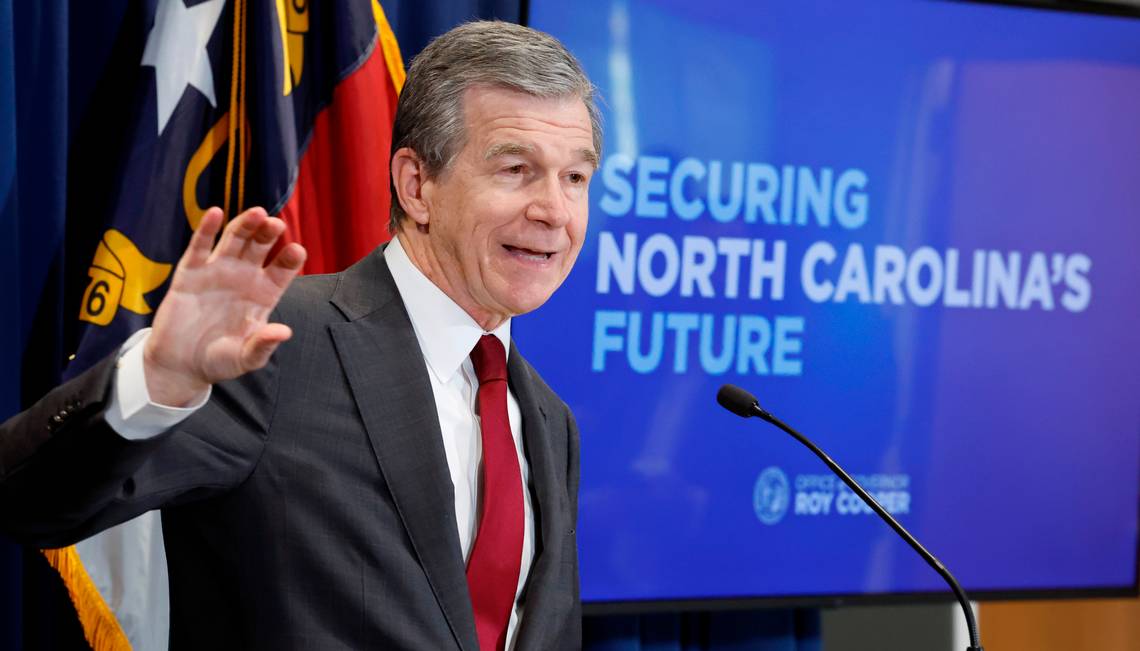Democratic Governor Roy Cooper of North Carolina has unveiled his budget proposal, aiming to allocate a portion of the state’s $1.4 billion revenue surplus towards significant raises for teachers and state employees. Cooper’s plan includes an 8.5% pay raise for teachers, along with a $1,500 retention bonus. State employees would also see a 5% raise, coupled with bonuses ranging from $1,000 to $1,500. Additionally, Cooper seeks to restore master’s degree pay for teachers.

Republican lawmakers, who control the state legislature, have expressed openness to some compromises but emphasize the need to keep spending in check. Senate leader Phil Berger indicated that while they support increasing pay for teachers and state employees, they are cautious about exceeding budgetary constraints.
In response to Cooper’s proposal, Republicans have highlighted their priorities, which include boosting pay for teachers and state employees, as well as increasing funding for private school tuition scholarships. Berger has voiced support for fully funding private school scholarships with over $100 million, a move opposed by Cooper.
Cooper has criticized the allocation of taxpayer money for private school scholarships, advocating for investments in public education instead. He argues that the state should prioritize funding for public schools over tax cuts for corporations and the wealthy.
Beyond salary increases, Cooper’s budget proposal includes provisions for more teacher assistants, an expansion of teaching fellow scholarships, and a one-time bonus for retired state employees as a cost-of-living adjustment.
While Republican leaders are open to considering raises, they prefer to use the revenue surplus for one-time bonuses rather than recurring raises. They are also hesitant about supporting a $2.5 billion bond referendum for public education proposed by Cooper, emphasizing their priority to minimize state borrowing.
The General Assembly’s short session aims to address budget adjustments, with lawmakers aiming to finalize the budget by early June. Despite differences in priorities, both parties are committed to ensuring the state’s fiscal responsibility while addressing the needs of teachers, state employees, and public education.